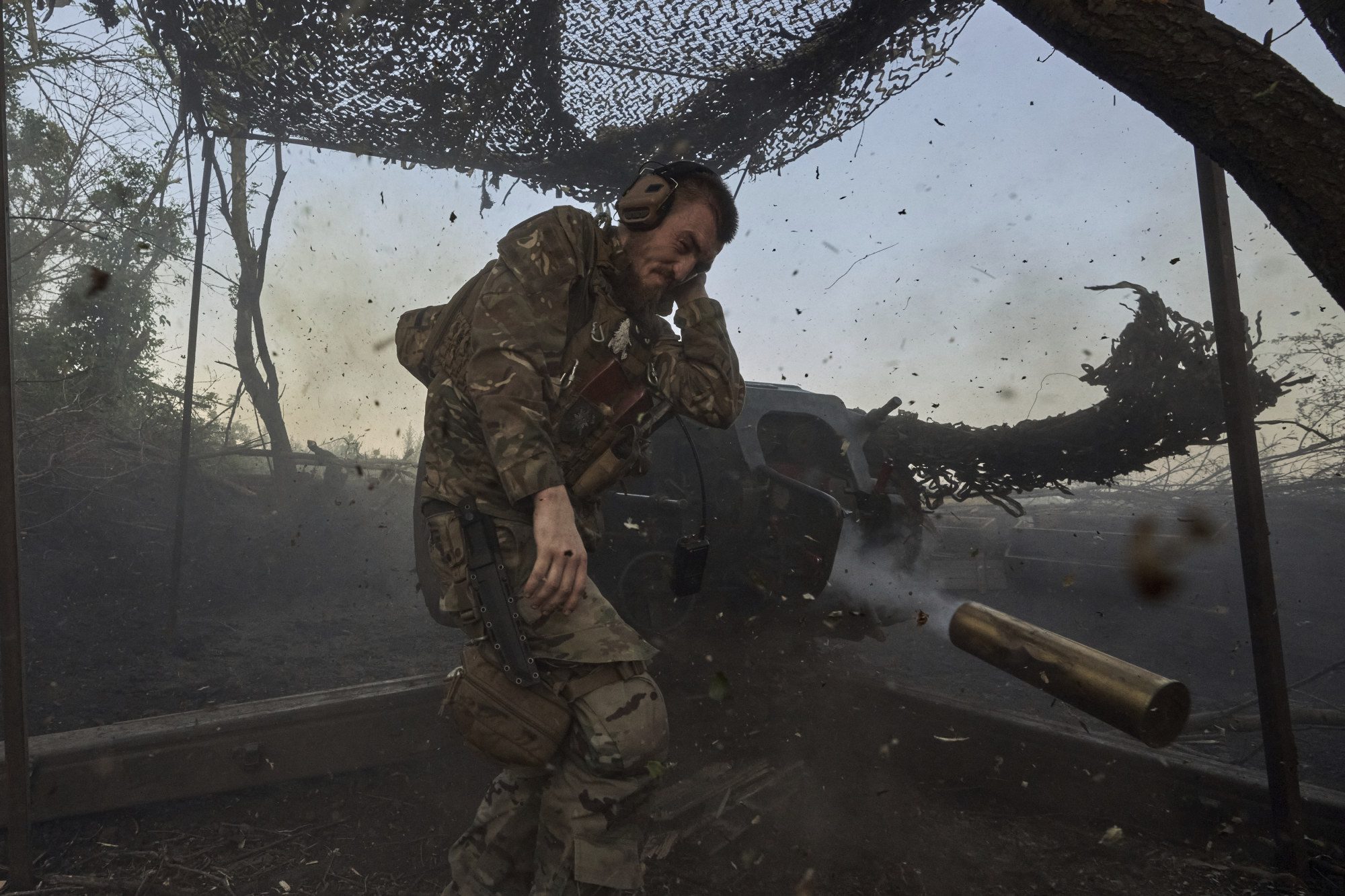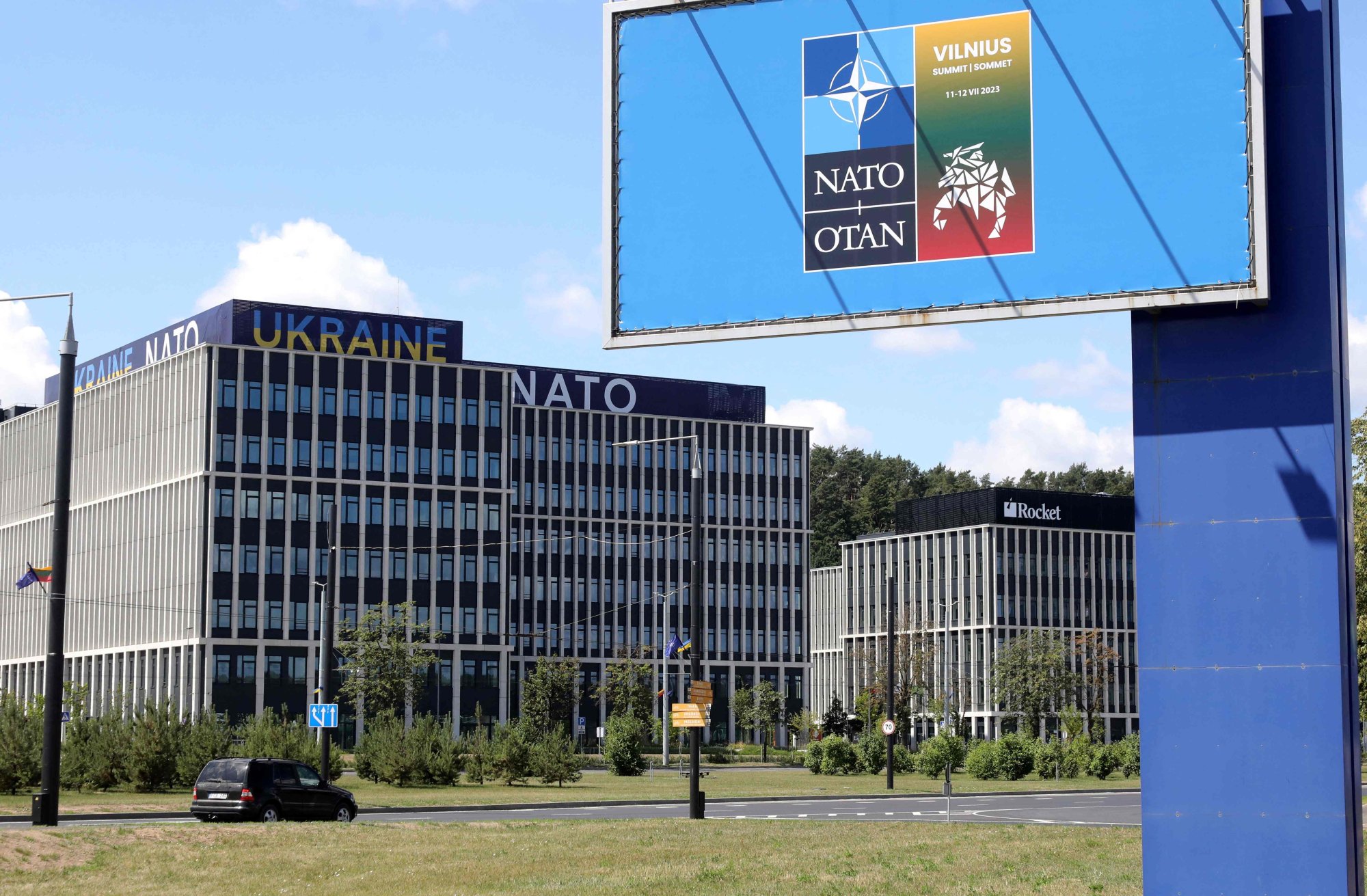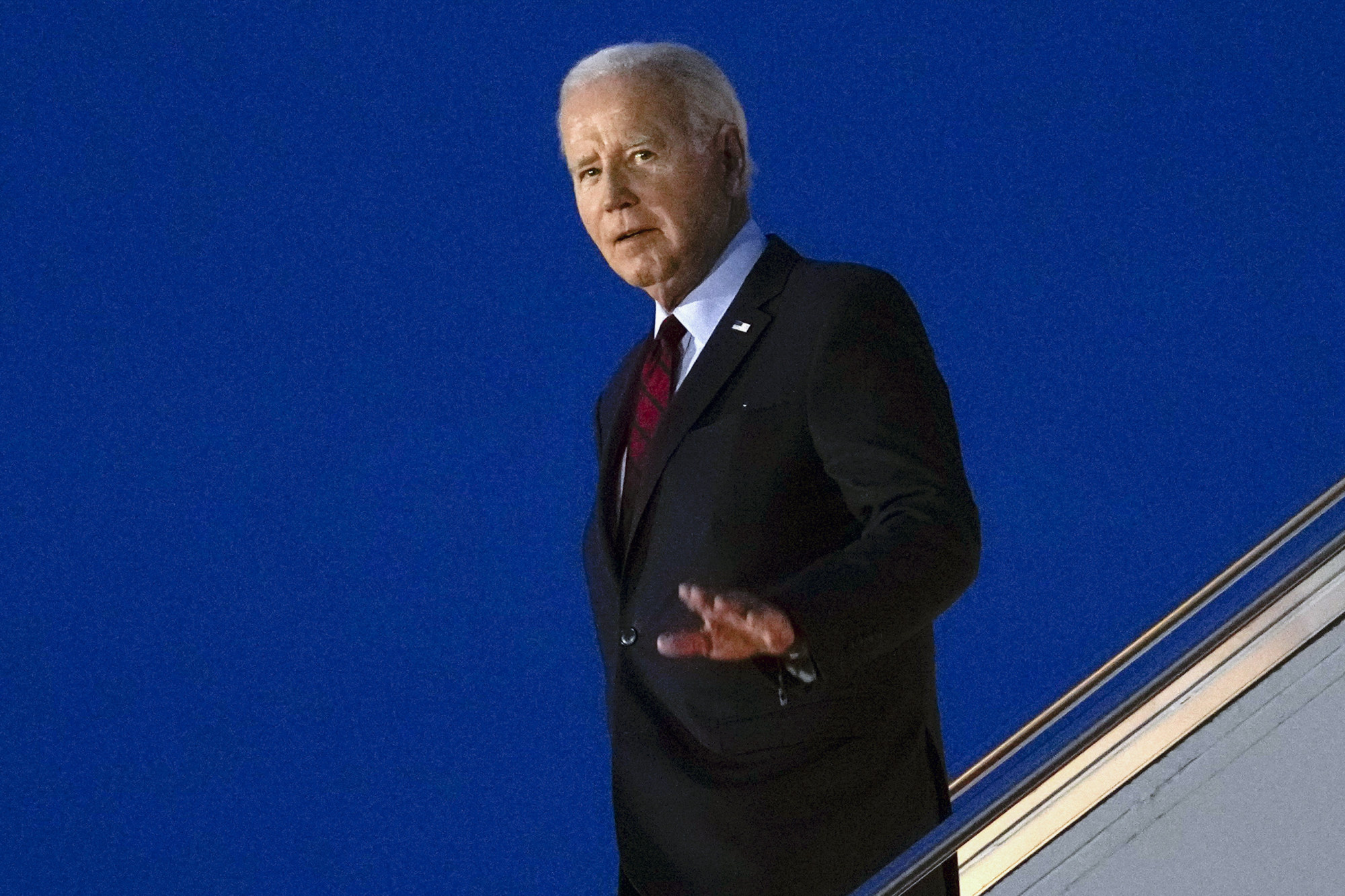
Ukraine goes on Nato membership offensive ahead of summit
- As the Russian invasion of Ukraine continues with no end in sight, Nato allies to meet in Lithuania capital for a summit
- Ukraine hopes to receive firm indications about both future Nato membership and guarantees for its security
Ukraine went on the offensive in its push to join the Nato defence alliance ahead of this week’s Nato summit.
Ukrainian President Volodymyr Zelensky told US broadcaster ABC News that he wants “all the decisions to be made during the summit” not ahead of time.
“I don’t want to go to Vilnius for fun if the decision has been made beforehand,” he said.
The two-day Nato summit begins in Vilnius, the Lithuanian capital on Tuesday and will focus, in part, on how to bring Ukraine, which is under attack from Russia, closer to the alliance and what security guarantees it can be given after Russia’s war of aggression ends.

“Ukraine should get clear security guarantees while it is not in Nato,” Zelensky told ABC. “And this is a very important point. Only under these conditions would our meeting make sense.”
A formal invitation to join the 31-member defence alliance is not likely to happen in Vilnius however.
US President Joe Biden, who arrived on Sunday in Britain on his way to the Nato summit, said he hoped the military alliance leaders would “lay out a rational path for Ukraine to be able to qualify to be able to get into Nato”.
Speaking to CNN, he said there were also “other qualifications that need to be met, including democratisation”.
“I don’t think there is unanimity in Nato about whether or not to bring Ukraine into the Nato family now, at this moment, in the middle of a war,” he added.
Bringing Ukraine in now, Biden said, would mean “war with Russia” because of the Nato commitment to collective defence.
Also in the spotlight in Vilnius will be Turkish President Recep Tayyip Erdogan, the main obstacle to Sweden’s attempts to join Nato alongside neighbour Finland.

Erdogan accuses Sweden of being too lenient on anti-Islamic demonstrations and militant Kurdish groups that have waged a long insurgency in Turkey.
Sweden recently changed its anti-terrorism legislation and lifted an arms embargo on Turkey. But a man burned a Koran outside a mosque in Stockholm last week, and Erdogan signalled that this would pose another hurdle.
He equated “those who permitted the crime” to those who perpetrated it.
Turkey and the US are also at an impasse over the sale of F-16 fighter jets. Erdogan wants the upgraded planes, but Biden says Sweden’s Nato membership has to be dealt with first.
Underscoring the prominence of Turkey at the upcoming summit, Biden held a lengthy call with Erdogan aboard Air Force One on the way to London. During the conversation, Biden “conveyed his desire to welcome Sweden into Nato as soon as possible,” according to the White House.
It’s not the first time that Erdogan has sought to use a Nato summit for Turkish gain. In 2009, he held up the nomination of Anders Fogh Rasmussen as secretary general but agreed to the move after securing some senior posts for Turkish officials at the alliance.

Max Bergmann, a former State Department official who leads the Europe Programme at the Centre for Strategic and International Studies, said there’s growing frustration among allies toward Erdogan, building on concerns about his ties to Russian President Vladimir Putin, democratic backsliding and sanctions evasion.
“They’ve tried playing nice,” Bergmann said. “The question is whether it’s time to get much more confrontational.”
Hungary’s prime minister, Viktor Orban, is also delaying his country’s approval of Sweden’s membership. In response, Idaho Senator Jim Risch, the top Republican on the Senate Foreign Relations Committee, is blocking a US$735 million US arms sale to Hungary.
At least one potentially difficult issue is off the summit agenda. Rather than seek consensus on a new Natp leader, members agreed to extend the tenure of Jens Stoltenberg, who’s held the job since 2014, for a year. It’s his fourth extension.
Most members wanted a woman to be the next secretary general, and Danish Prime Minister Mette Frederiksen had been considered a favourite. But Poland insisted on a candidate from the Baltic states because there had already been two Nordic secretaries general in a row. (Stoltenberg was a Norwegian prime minister and Rasmussen was a Danish prime minister.)
Others are sceptical of accepting a nominee from the Baltics, whose leaders tend to be more provocative in their approach to Russia, including supporting Ukraine’s desire to rapidly join Nato.
dpa, Agence France-Presse and Associated Press
